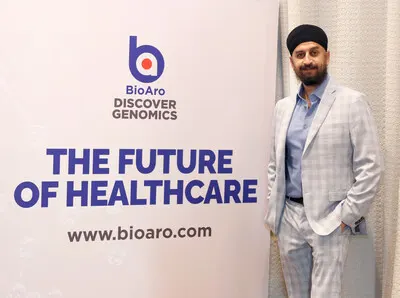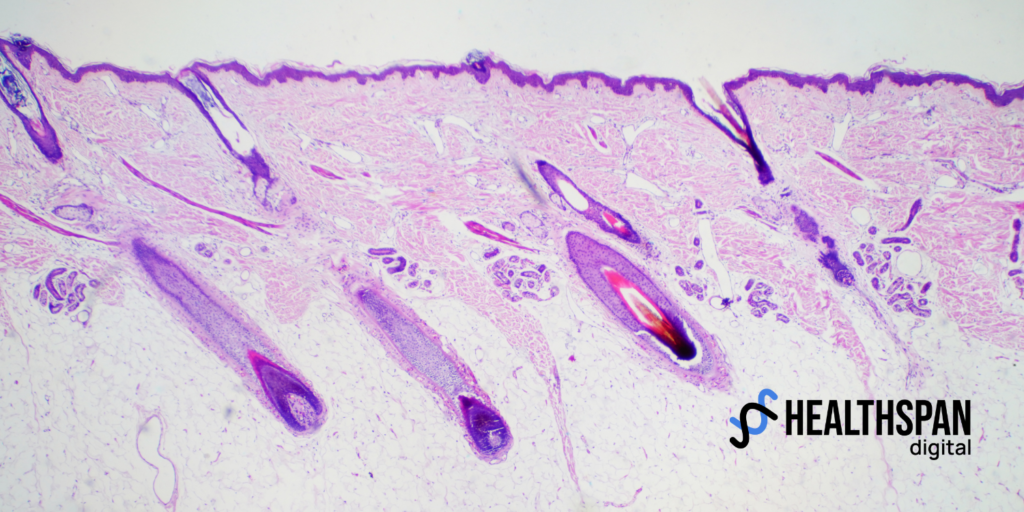Authors; Fady Hannah-Shmouni, MD FRCPC, Anmol Kapoor MD FRCPC, and Constantine A. Stratakis, MD D(Med)Sci PhD
Precision genomics is a field of medicine that has the potential to greatly impact longevity and overall healthspan. By utilizing advanced genomic technologies, researchers and clinicians can gain a deeper understanding of the genetic factors that contribute to various diseases and conditions and how we respond to the environment, allowing for more targeted and personalized interventions.
The Evolution of Genomic Medicine
Medicine is an ever-changing art, continuously adjusting to the shifting principles of ethics and society and adapting the constant discoveries of science; this was beautifully said by Hippocrates: “…η δε ιητρικη νυν τε και αυτικα ου το αυτο ποιεει…” (“…medicine does not do the same thing at this moment and the next…”). The field of genomic medicine has undergone significant advancements in recent decades. Two key developments have played a crucial role in revolutionizing medicine: the concept of “positional cloning” and the introduction of polymerase chain reaction (PCR) technology. Positional cloning is an older term that was used to describe the identification of disease-causing genes without prior knowledge of their function. In the 1990s, this breakthrough allowed researchers to pinpoint genetic mutations responsible for various diseases. PCR technology, on the other hand, made DNA sequencing more accessible and practical for both researchers and clinicians.
The completion of the Human Genome Project (HGP) in 2003 further propelled the field of genomic medicine forward. The project revealed that the human genome consists of 3.3 billion pairs of nucleotide bases, with 99.9% similarity among individuals. This knowledge paved the way for the development of next-generation sequencing methods, which are now widely available and more cost-effective.
Genetic Testing and Longevity
Genetic testing has become an essential tool in clinical practice, offering valuable insights into an individual’s genetic makeup and potential health risks. It allows for the identification of disease-causing mutations, estimation of recurrence risk, and informed family planning decisions.
In recent years, direct-to-consumer genetic testing has gained popularity, with millions of people opting to have their DNA analyzed by companies like “23andMe.” These tests provide information about ancestry, traits, and even health risks. Genetic testing has become routine in many clinical settings, enabling early identification of genetic conditions and facilitating personalized treatment plans. Newer companies now offer direct-to-consumer whole-genome testing for lower than $1000, including www.sequencing.com and www.BioAro.com.
For individuals with rare diseases, genetic testing has been particularly transformative. While each rare disease may be individually rare, collectively, they affect a significant number of patients and account for a disproportionate share of healthcare costs. Genetic testing allows for early diagnosis, accurate prenatal screening, and the monitoring of disease progression, leading to timely interventions and improved outcomes.
Precision Genomics and Longevity
Precision genomics holds great promise for extending longevity and improving overall healthspan. By analyzing an individual’s genetic information, clinicians can identify genetic variations that may impact disease risk, treatment response, and overall health outcomes. Advancements in next-generation sequencing technologies, such as whole genome sequencing (WGS) and whole exome sequencing (WES), have made it possible to comprehensively analyze an individual’s genetic makeup at a relatively affordable cost. These technologies generate vast amounts of data, allowing for the detection of both common and rare genetic variants.
However, interpreting the vast amount of genetic data obtained through precision genomics remains a challenge. Variants of unknown significance, structural variations, and mosaicism are among the complexities that need to be considered. Ongoing research and the integration of genotypic and phenotypic data are crucial for accurate variant interpretation and improving diagnostic yield.
Precision genomics also plays a significant role in cancer medicine. The analysis of circulating cell-free DNA (cfDNA) in plasma has revolutionized cancer detection, monitoring, and treatment response assessment. Liquid biopsies, which involve the analysis of cfDNA, provide a non-invasive method for early cancer detection and personalized treatment planning.
In the field of prenatal testing, precision genomics has transformed the detection of fetal aneuploidies. Non-invasive prenatal testing, which analyzes cfDNA from maternal plasma, has largely replaced invasive procedures like amniocentesis. This approach offers a safer and more accurate method for identifying chromosomal abnormalities in the fetus.
Epigenetics and Telomere Assessment
Epigenetics and telomere assessment are two areas of study that have gained attention in the field of longevity medicine. These fields offer insights into the aging process and potential interventions to promote healthy aging. Epigenetics refers to the study of changes in gene expression that do not involve alterations to the DNA sequence itself. Epigenetic modifications, such as DNA methylation, histone modifications, and non-coding RNA molecules, can influence gene activity and play a role in various biological processes, including aging.
Research has shown that epigenetic changes can occur with age and contribute to the aging process. Epigenetic clocks, which are mathematical models based on DNA methylation patterns, have been developed to estimate biological age and assess the pace of aging. These clocks provide a measure of age that may be more accurate than chronological age alone.
Epigenetic age acceleration, which refers to the difference between chronological age and epigenetic age, has been associated with various health outcomes and mortality risk. By assessing epigenetic age and age acceleration, researchers can gain insights into the biological aging process and potentially identify interventions to slow down or reverse age-related changes.
Telomeres are protective caps at the ends of chromosomes that shorten with each cell division. Telomere length is considered a marker of cellular aging, as shorter telomeres are associated with cellular senescence and age-related diseases. Telomere length can be assessed through various methods, including quantitative polymerase chain reaction (qPCR) and fluorescence in situ hybridization (FISH) By measuring telomere length, researchers can evaluate cellular aging and potentially predict an individual’s risk of age-related diseases.
Epigenetics and telomere assessment have the potential to contribute to longevity medicine in several ways:
- Identifying Biomarkers: Epigenetic clocks and telomere length can serve as biomarkers of biological age and age-related changes. These biomarkers can help identify individuals who may be at higher risk for age-related diseases and guide personalized interventions.
- Assessing Interventions: Epigenetic and telomere assessments can be used to evaluate the effectiveness of interventions aimed at promoting healthy aging. By monitoring changes in epigenetic age and telomere length, researchers can determine if interventions are slowing down or reversing age-related changes.
- Developing Therapies: Epigenetic modifications and telomere maintenance pathways are potential targets for therapeutic interventions. Understanding the mechanisms underlying epigenetic changes and telomere shortening can help in the development of interventions to promote healthy aging and extend lifespan.
Epigenetics and telomere assessment offer valuable insights into the aging process and potential interventions for promoting healthy aging. By studying epigenetic changes and telomere length, researchers can identify biomarkers, assess interventions, and potentially develop therapies to extend healthspan. Further research in these fields will contribute to the advancement of longevity medicine and our ability to promote healthy aging.
The Future of Precision Genomics
Precision genomics is an ever-evolving field with the potential to impact every aspect of medicine and life. As next-generation sequencing technologies continue to improve and become more accessible, their applications will expand further. This expansion will likely lead to advancements in disease prevention, targeted therapies, and personalized interventions aimed at extending longevity and improving overall health outcomes.
It is crucial for all healthcare professionals to stay informed about the basics of precision genomics and its current applications. Understanding the principles of next-generation sequencing, variant interpretation, and the challenges associated with mosaicism and structural variations will enable clinicians to leverage the power of precision genomics in their practice.
It is important to note that the field of longevity medicine is still evolving, and further research is needed to fully understand the role of epigenetics and telomere assessment in promoting healthy aging and extending lifespan, among other evolving biomarkers and therapies. However, these areas of study hold promise for advancing our understanding of the aging process and developing interventions to improve healthspan.
Conclusion
In conclusion, precision genomics has the potential to significantly impact longevity and overall healthspan. By utilizing advanced genomic technologies, clinicians can gain valuable insights into an individual’s genetic makeup, identify disease-causing mutations, and develop personalized treatment plans. As the field continues to evolve, precision genomics will play an increasingly vital role in improving health outcomes and extending lifespan.
Disclosures
Drs. Hannah-Shmouni and Stratakis are founders of Healthspan Digital Inc. Dr Kapoor is the founder of BioAro. Dr. Stratakis holds patents on technologies involving GPR101, PRKAR1A, PDE11A, and related genes causing adrenal, pituitary and other tumors. In addition, his laboratory has received research funding support by Pfizer Inc. for investigations on growth-hormone producing pituitary adenomas. Dr. Stratakis has consulting relationships with ELPEN, Sterotherapeutics, Human Longevity, Lundbeck pharmaceuticals, and sits in the Editorial Boards of several journals. Dr. Hannah-Shmouni is a Professor of Medicine at the University of British Columbia, a member of the Endocrine Hypertension Subcommittee of the Canadian Hypertension Guidelines (Hypertension Canada), and the Vice Chair of the Pituitary, Gonad, Adrenal and Neuroendocrine Resource Centre of the American Association of Clinical Endocrinologist, and has no relevant disclosures to report.
About Healthspan Digital Inc.
Healthspan Digital Inc is a healthTech company based in Toronto, Canada, which offers data-driven services focusing on cost-effective longevity biomarkers and solutions for small and medium-sized businesses. The primary objective is to revolutionize the health and fitness industry through the integration of precision medicine, genomics, and longevity programs. Healthspan Digital has developed a unique membership-based clinical service that brings together these cutting-edge advancements, enabling participatory longevity care for individuals from all walks of life. They offer a proprietary and curated Healthspan-as-a-Service (H-as-a-S) program for a proactive and preventative precision medicine, by building and operating cost-effective clinical programs in world-class gyms and spas.
About BioAro Inc.
BioAro is headquartered in Calgary, Alberta, Canada, and was founded by Dr. Anmol Kapoor in 2021. The company specializes in pharmacogenetics, microbiome, nutrigenomics, artificial intelligence, blockchain, genomics, precision health, genetic counseling, and sequencing. The services provided by BioAro include whole exome sequencing, whole genome sequencing, targeted panels, cancer sequencing, and microbiome sequencing, among others. BioAro also focuses on ensuring the wellness of people by studying their microbiomes and providing them with wellness coaching programs.



